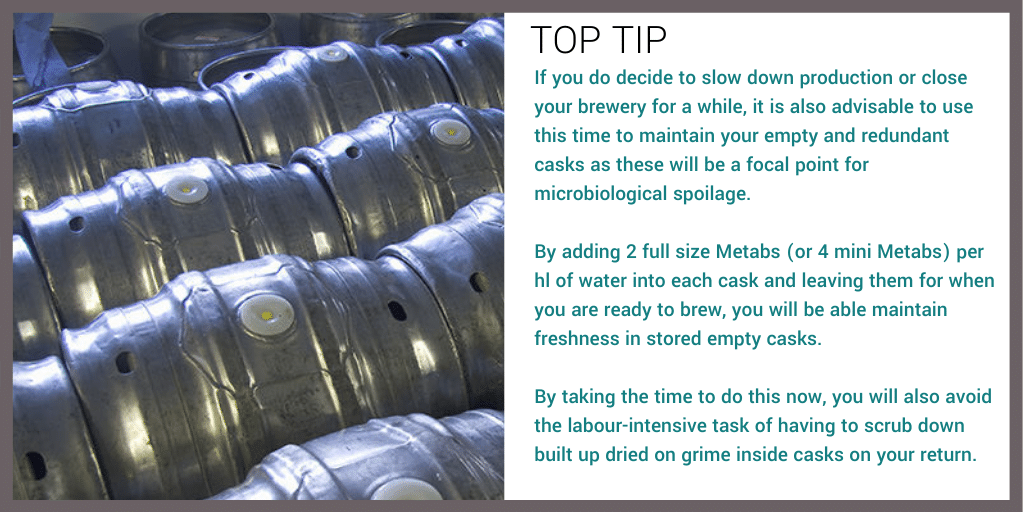The uncertainty of the current situation with Covid-19 has left many brewers with a backlog of stock and concerns with selling into a reduced market. Many breweries have looked to new approaches to keep their beer fresh and moving out the door into the hands of parched, self-isolating punters by offering home-deliveries and transferring to bottles, cans and growlers.
Even with these innovative approaches, the amount of beer to move is concerning many, especially with the ticking shelf life.
If your brewery is heavily into cask and you aren’t looking to age your beer, now is the right time to consider how to extend the shelf life of your product and prevent microbiological spoilage.
Microbiological contamination is the most common cause of beer spoilage and its control is essential to maintain its good quality.
There are three main microbiological contaminants to consider:
- Bacteria
- Wild Yeast
- Fungi and Moulds
All the above can be easily avoided with use of Sodium Metabisulphate and good hygiene practises.
Our easy to use tablet form Sodium Metabisulphate, Metabs, hinder the growth of spoilage microbes such as wild yeast, bacteria and fungi.
They are ready to use so no need to measure or weigh- just add straight to the fermenter.
To use Metabs as an addition to beer as a preservative, suitable rates lie between 10 and 50 ppm of sulphur dioxide (SO2): 1 Metab per hectolitre → 11 ppm sulphur dioxide (SO2).
It is worth noting that the maximum level permitted for SO2 in cask conditioned beer is 50 ppm. In all other beers only 20 ppm SO2 is permitted (Council Regulation 1333/2008/EC)
Sulphur dioxide and sulphites at concentrations of more than 10 mg/kg or 10 mg/ litre expressed as SO2 must be labelled as allergenic according to European Directive 2003/89/EC.
Over the course of the next few weeks, we will be sharing more content in our ‘What to do if you can’t brew…’ series with a view to providing technical and commercial advice to help you and your staff save time, money and resources.
We will be covering a variety of topics including yeast storage, best hygiene practises, forecasting your business cash flow and lobbying to the government so please keep an eye out for further updates.


